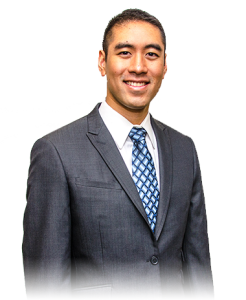Interventional Pain Management Specialist Dr. Kaliq Chang with Atlantic Spine Center explains common muscle problem and offers tips on treatment.
WEST ORANGE, N.J. (PRWEB) October 17, 2019
Talk about a real pain in the neck: Neck spasms take a common form of discomfort to the next level. But fortunately, a variety of home-based treatments can help, according to Kaliq Chang, MD, of Atlantic Spine Center.
What’s the difference between run-of-the-mill neck pain and neck spasms? Spasms occur when the muscles in your neck contract suddenly and involuntarily, triggering severe, sharp pain; trouble moving the neck and shoulders; a headache; or even dizziness or tingling in the base of the neck, Dr. Chang explains.
“When neck spasms strike, the effects can be extreme,” says Dr. Chang, an interventional pain management specialist who’s double board-certified in interventional pain management and anesthesiology. “The muscles in your neck feel tight, hard and painful, and tender spots in your neck – often called trigger points – can prompt pain in areas around your neck. It’s difficult to do anything else when your neck is in spasms.”
Causes of neck spasms
What brings on neck spasms? Culprits range from the minor to the serious, Dr. Chang says, and include:
- Sitting for extended periods in front of a computer
- Turning suddenly while sleeping
- Repetitive neck movements
- Wearing a heavy bag on one shoulder
- Carrying a heavy item, especially with just one arm
- Cradling a phone against the neck
- Emotional stress
- Poor posture
- Whiplash or other physical trauma
- Back conditions such as spinal stenosis or herniated disc
- Medical conditions such as meningitis, an infection of the membranes surrounding the brain and spinal cord
If you’re not sure what triggered your neck spasm and are experiencing other alarming symptoms, such as weakness, numbness or fever, see a doctor.
Unfortunately, it’s usually tricky to predict how long pain from neck spasms can last, Dr. Chang says. “It can linger from a few days to a few weeks,” he notes. “If you can trace your symptoms to a particular activity, it’s important to stop doing that activity until your muscles have healed and the pain has eased. Otherwise, it will take longer to recover.”
Treatment and prevention tactics
In the meantime, a variety of exercises and home-based remedies can help speed up the recovery process after experiencing necks spasms. Treatment tactics include:
- Stretches: This may be the quickest, most effective remedy, Dr. Chang says. “Gently stretch the muscles in spasm, repeating these stretches as needed as the muscles calm down,” he adds.
- Massage: Placing pressure on the neck muscles – either with your own or someone else’s hands – can help knead tightness away.
- Ice or heat: Ice packs, gel packs or frozen vegetables are the cold form of this treatment, while moist heating pads or wet washcloths are the heated form. Apply whichever temperature therapy feels best. Repeat every few hours for 20 minutes or so at a time.
- Medications: Over-the-counter NSAIDs (nonsteroidal anti-inflammatory drugs) such as ibuprofen or naproxen can ease pain and calm inflamed muscles, Dr. Chang says, or your doctor can prescribe a higher-strength version.
- Physical therapy: Your doctor may prescribe a course of physical therapy to provide certain exercises and other treatments for neck spasms.
- Steroid injections: If non-invasive treatments don’t help, your doctor may inject a steroid or pain reliever into the affected neck area.
As always, of course, prevention is far preferable to experiencing neck spasms in the first place – or suffering a recurrence, Dr. Chang says.
“You can avoid the most common triggers of neck spasms by practicing good posture while you walk and sit at a computer, taking frequent breaks, and stretching your neck muscles several times a day,” he advises.
Atlantic Spine Center is a nationally recognized leader for endoscopic spine surgery with several locations in NJ and NYC. http://www.atlanticspinecenter.com, http://www.atlanticspinecenter.nyc
Kaliq Chang, MD, is an interventional pain management specialist, double board-certified in interventional pain management and anesthesiology, at Atlantic Spine Center.

